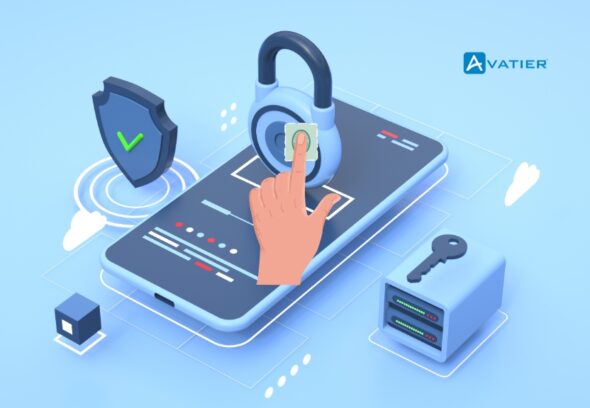Identity management is a feature of self-service that is widespread in many industries in the current digital era. Self-service in identity management is about letting users manage their own identities and access rights using intuitive interfaces and tools. This strategy enables people to control their personal data, passwords and rights of entry without the necessity for continual interference from IT personnel or administrators.
An improved user experience is one of the major advantages of self-service in identity management. By allowing users to control and manage their own identities, organizations can simplify the process of providing and withdrawing access rights. Users can perform updates of their personal information, reset their passwords, and request additional resources through a self-service portal. This not only relieves the IT staff from the burden but also lets the users be less reactive in handling their identities, thus, making them more productive and satisfied.
In this respect, self-service in identity management also provides the possibility of group automation, which helps organizations assign access rights to groups of users instead of individual ones. This method streamlines the management process and provides access by role. The self-service group management allows to add or remove users to a group and automatically adjust their access rights. This also saves time and reduces the risk of human errors that may happen in manual access provisioning.
The Benefits Of Self Service In User Experience
The user’s experience is greatly improved by self-service in identity management which allows the user to have more power over his or her identity and access rights. The self-service portals enable users to update personal information including contact details or job titles, thereby eliminating the need for the IT staff to do so. This minimizes the administrative load on the company and corrects the user data.
In addition, self-service portals enable the customer to reset their password by themselves, sparing them from calling IT support and waiting for help. This not only saves time but also allows users to get back to their accounts in a short while, avoiding disruptions in their work. Self-service password reset functionality typically comes with more means of security for example multi-factor authentication, to ensure the process is authentic.
Another feature of self-services that improves the user experience is the possibility to ask for access to more resources. Using a self-service portal, users can submit access requests for particular applications or data, which are then sent to the correct approvers for review. This simplified process removes the requirement for manual documentation or emails, which in turn, minimizes delays and enhances productivity.
Artificial Intelligence In Self-Service Identity Management Role
AI is an important player in self-service identity management, which is done through intelligent automation and virtual agent capabilities. AI algorithms can perform analysis of user behavior and patterns to find out the anomalies and potential security threats. This enables organizations to put in place proactive measures that will prevent unauthorized access or theft of identity.
The AI-based virtual agents improve the self-service experience by offering tailored help and support. Such virtual agents can recognize natural language requests and offer meaningful answers thus reducing the need for human involvement. Virtual agents can lead users through the self-service process, respond to most common questions, and even execute automated actions, like unlocking user accounts or giving temporary access.
In addition, AI allows for live monitoring and assessment of identity management systems. AI algorithms can detect possible threats or non-compliances by continuously monitoring user activities and access requests. The proactive approach allows organizations to identify and solve security problems before they get out of hand, thus ensuring the integrity of their identity management processes.
Utilization Of AI Virtual Agents For Self-Service In Identity Management
The AI virtual agents act as a strong tool for organizations to improve their self-service identity management abilities. Such virtual agents can also be embedded into the self-service portals, where the users interact with them through natural language interfaces like chatbots or voice assistants.
Personalized assistance is one of the main benefits of AI virtual agents. By profiling users and historical data, virtual agents can provide personalized recommendations or suggestions to users, to ensure they make informed decisions about access requests or password changes. By using this individualized approach, the user experience is not only improved but also the accuracy and efficiency of identity management processes are enhanced.
In addition, AI virtual agents can execute repetitive tasks, e.g., password resets or access permissions, freeing IT staff and enhancing overall efficiency. The virtual agents can handle a lot of requests at the same time which enables quick response times and minimizes the waiting time for the users.
Other than self-service functionalities, AI virtual agents also help IT personnel maintain identity management systems. These digital agents can create reports, do data analysis, and offer recommendations that will enable administrators to improve their identity management system. AI virtual agents enable organizations to improve the efficiency, accuracy, and security of their identity management practices.
Conclusion
Self-service based identity management with AI and virtual agents is the identity management system for the future. User empowerment to handle their own identities and privileges in the case of access leads to improvement of the user experience, simplifies administration and brings about higher productivity.
AI in self-service identity management has a function that is more than automation. AI algorithms support preventive security solutions, continuous monitoring, and individualized help from virtual agents. Through the use of AI virtual agents, organizations can offer users smart and effective self-help experiences, besides enhancing IT staff productivity and system security.
With the ever-changing digital landscape, self-service in identity management will become more important in providing secure and user-friendly access to resources. Organizations that adopt self-service and use AI virtual agents will manage to adjust to the changing user needs and remain competitive in the dynamic industry of identity management.
Start your free trial now to feel the might of AI virtual agents-powered self-service identity management today.




